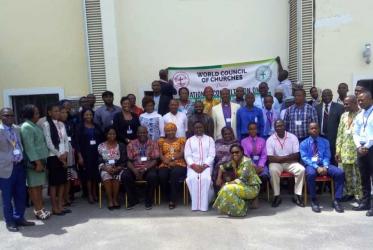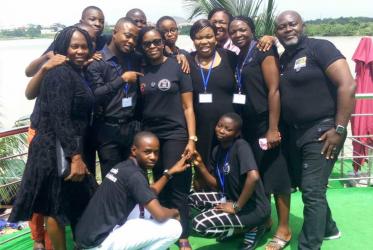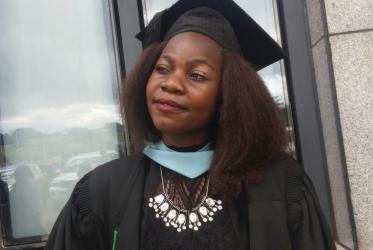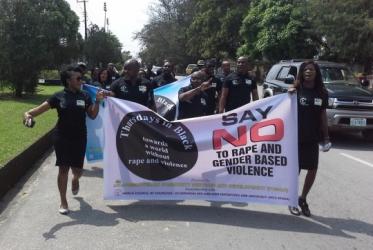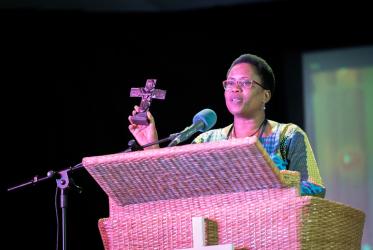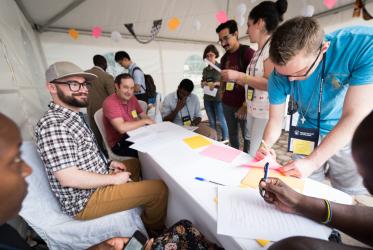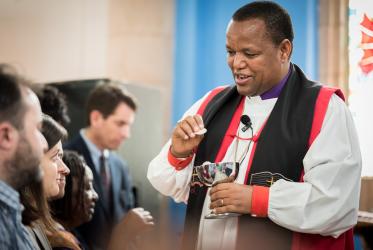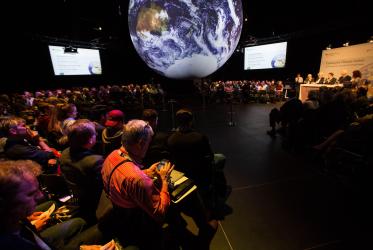Displaying 161 - 180 of 324
Congolese churches respond to Ebola outbreak
01 June 2018
WCC leader offers Steve de Gruchy Memorial Lecture
24 April 2018
In Nigeria, Thursdays in Black is flourishing
26 March 2018
WCC-EHAIA pioneer receives honorary doctorate
21 March 2018
“Sending service” closes Arusha conference
13 March 2018
‘Sokoni’ transforms marketplace into mission
13 March 2018
Arusha offers vibrant and colourful worship life
12 March 2018
GETI students plant trees, in service for greener future
07 March 2018
Konrad Raiser shares ecumenical journey of transformation
06 February 2018
Conversation on HIV “must continue,” Faith Networking Zone shows
07 December 2017


